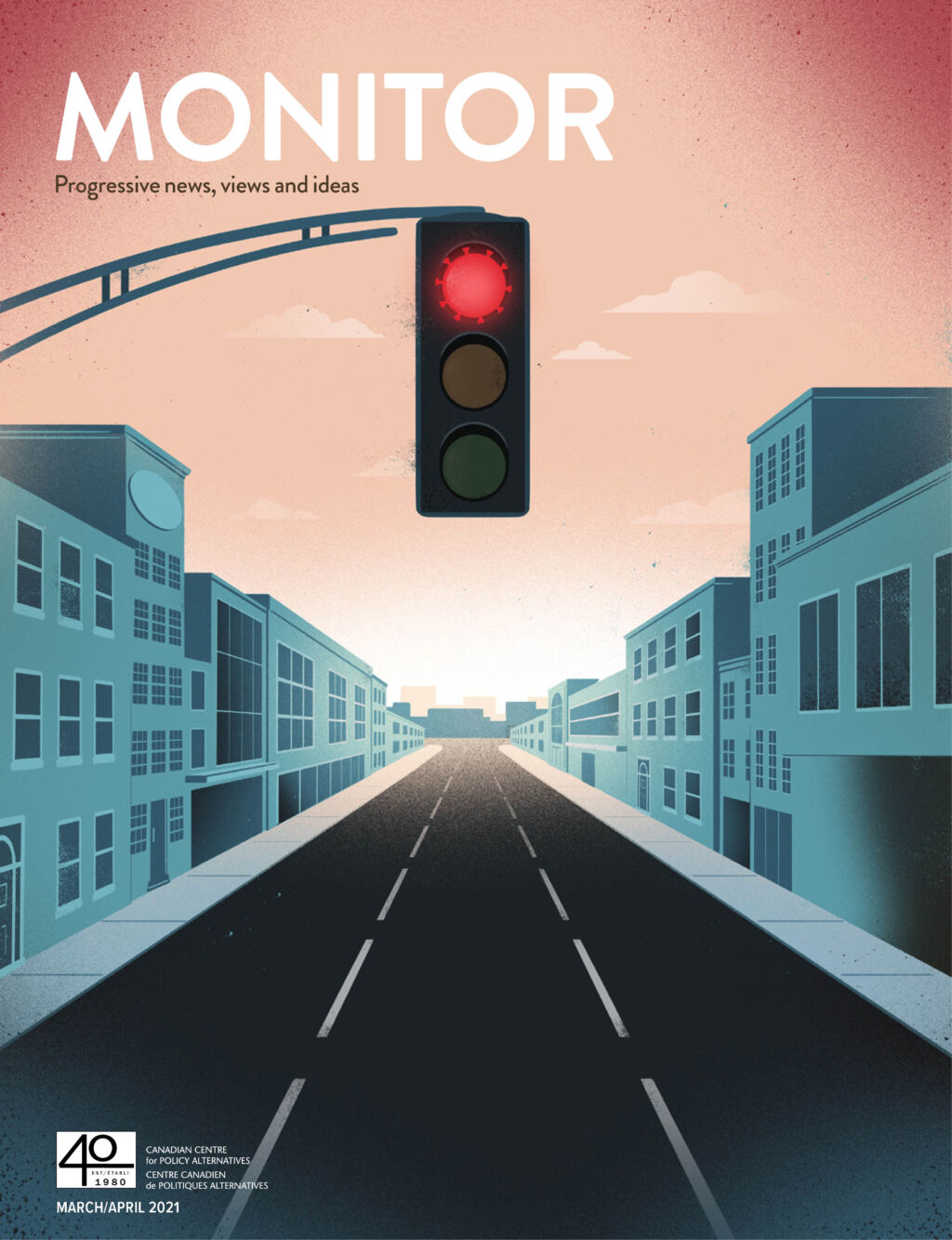I WANTED TO WRITE a note to you, separate from the editorial in this first issue that I am overseeing. I just finished editing Erika Shaker’s memorial piece honouring Ed Finn. As I read it, I had so many thoughts and feelings. Sadness that our community has lost this beacon. Regret that I won’t be able to share my first issue of the Monitor with him. White hot terror to be following in the footsteps of an absolute giant.
And then came the big, unsettling question: who am I to lead this publication? Because... I am no Ed Finn.
I recognize that some of you have met me over email, or through the occasional article that I’ve managed to write off the side of my desk during my three years with the CCPA. But I’d like the chance to formally introduce myself. I’d like to explain why I’ve asked you to trust me with the Monitor.
I grew up in a community mired in the real time aftermath of neoliberal policies. Following the signing of NAFTA, the factories that provided work in my neighbour-hood were downsized, shuttered, and, in one case, turned into a fancy condo. At the same time, I watched Ontario’s then-Premier Mike Harris make drastic cuts to education, health care and social assistance. I watched my family and community lose jobs in the public and private sectors. It felt like we were getting squeezed from every side.
A few years later, I’d see just how big the gaps in the social safety net could get as a homeless youth. I’d go on to spend a decade working in the service and gig economy, holding down multiple roles at a time. I didn’t get out of this cycle because of anything spectacular on my account. I managed to get out because rent was still affordable enough and tuition still low enough and, let’s be honest, the student loan people saw the value in giving me $25,000 that will cost me over $45,000 by the time I pay it off. It’s not lost on me that the Katie who went off to university in 2006 would be unable to achieve the same goal now, just 15 years later.
And that’s why I want to be at the Monitor. Because it feels like a door shut behind me, making things even more difficult for those who followed, and I fundamentally do not accept that. The Monitor is and always has been a special publication. As former Monitor editor Stuart Trew coined, it’s a magazine for progressive news, views and ideas. Now, more than ever, we need these ideas and these conversations.
It means a lot to me to be the first disabled editor of this publication and the first person at the helm who is not a cisgender man. I am excited to increase the breadth of voices that we are able to bring to the conversations that the Monitor hosts.
What does that mean for the Monitor magazine? We will be putting out more open calls for contributions to make sure that we’re getting a more diverse array of voices from coast to coast to coast, in addition to continuing to highlight the great work by CCPA colleagues across the country. The structure of the magazine itself won’t change much. We know that you love the Monitor, and I am profoundly grateful to both Stuart and Ed for the incredible publication that their hard work and vision has built.
There are two changes that I will flag. Our colleague Lynne Fernandez retired at the end of 2020. As a result, her column retired with her. I’ve invited Stuart to start a trade column in its place. The other change that I am excited to share with you is the addition of the “Five Books” section. We are fortunate to have so many experts in our midst, why not tap them for their guidance with regards to reading lists? I am thrilled to announce that for the first iteration, the incomparable André Picard, health reporter for the Globe and Mail, agreed to put together a list for us. I hope you enjoy the new addition as much as I have. And if there are experts whose bookcases you’d like to have a peek at, I would love to get your suggestions via email.
It is an honour to step into this role and I know that so many of you have been with the CCPA and the Monitor for many years. Your support is what keeps us fighting and writing. While I am excited to see what we can build together, what we create honours the Monitor’s past, without which none of this would be possible. For that reason, it only felt right to give the last word in my first issue to Ed.







